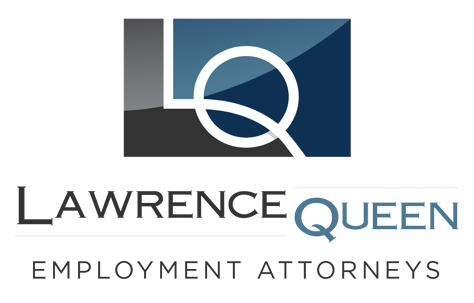The Families First Coronavirus Response Act (FFCRA) is effective as of April 1, 2020 and expires at the end of the year. Here’s what employees and their employers need to know.
Under the FFCRA, an employee at a business with fewer than 500 employees is entitled to take leave related to COVID-19 if the employee is unable to work because he or she:
- Is subject to a federal, state or local quarantine or isolation order
- Has been advised by a health care provider to self-quarantine
- Is experiencing symptoms associated with COVID-19 and is seeking a medical diagnosis.
- Is caring for an individual subject to a quarantine or isolation order
- Is caring for a child whose school or place of care is closed or unavailable due to coronavirus-related reasons
- Is experiencing any other substantially similar condition specified by the U.S. Department of Health and Human Services
Paid Sick Leave for COVID-19
Up to two weeks of paid sick leave is available to qualifying employees. For the first three reasons, the amount of pay is based on either the employee's regular rate of pay or the applicable state or minimum wage, whichever is higher, and it is to be paid at 100 percent, up to $511 daily, and $5,110 total. For the fourth and sixth reasons, the amount of pay is two-thirds of either the employee's regular rate of pay or the applicable state or minimum wage, whichever is higher, up to $200 daily and $2,000 total.
Expanded FMLA Leave for Childcare
An additional 10 weeks of partially paid expanded family and medical leave is available to some employees when their children's school or place of childcare is closed. The payment amount in this instance is two-thirds of either the employee's regular rate or the applicable state or minimum wage, whichever is higher, up to $200 daily and $12,000 total ($10,000 plus up to $2,000 of unused paid sick leave if applied to the first 10 days). To be eligible for this leave, an employee must have been employed for at least 30 days prior to his or her leave request.
Note that an individual generally is entitled to paid sick leave under the FFCRA regardless of how much leave has been taken under the Family and Medical Leave Act (FMLA). But if someone takes paid sick leave concurrently with the first two weeks of emergency family and medical leave, which otherwise would be unpaid, those two weeks do count toward the 12 workweeks in the FMLA's 12-month period.
Employees requesting leave should notify their employer as soon as possible and should provide a signed statement containing:
- The employee's name
- The date(s) for which leave is requested
- The coronavirus-qualifying reason for leave
- A statement that the employee can't work or telework because of this reason
In addition, an employee must provide the name of the government entity that issued the quarantine or isolation order to which the employee is subject, if that is the reason for paid sick leave.
An employee seeking leave because he or she is self-quarantined must provide the name of the health care provider making the quarantine recommendation. Someone caring for a person who is quarantined must provide either the government entity that issued the quarantine or isolation order or the name of the health care provider who advised the individual to self-quarantine.
An employee requesting expanded family and medical leave should provide:
- The name of the child being cared for
- The name of the school, place of care or childcare provider that closed or became unavailable due to coronavirus reasons
- A statement representing that no other suitable person is available to care for the child during the period of requested leave
However, if an employee fails to give proper notice, the employer should give him or her notice of the failure and an opportunity to provide the required documentation prior to denying the request for leave.
Department of Labor and IRS regulations and guidance regarding the FFCRA are evolving and employees and employers should continue to monitor these for the latest information. If you have questions, we are here to assist you with a socially distant telephone or video conference.
Are You Being Unfairly Treated?
Despite the protections provided by the FFCRA for workers to take leave, your employer may be violating your rights at work. If you’ve been told you aren’t eligible to take the new sick leave or expanded FMLA leave despite knowing your qualifications, reach out to an attorney from Lawrence Queen for help.
Arrange a confidential consultation with one of our attorneys today by contacting us online or calling (804) 409-8689.

